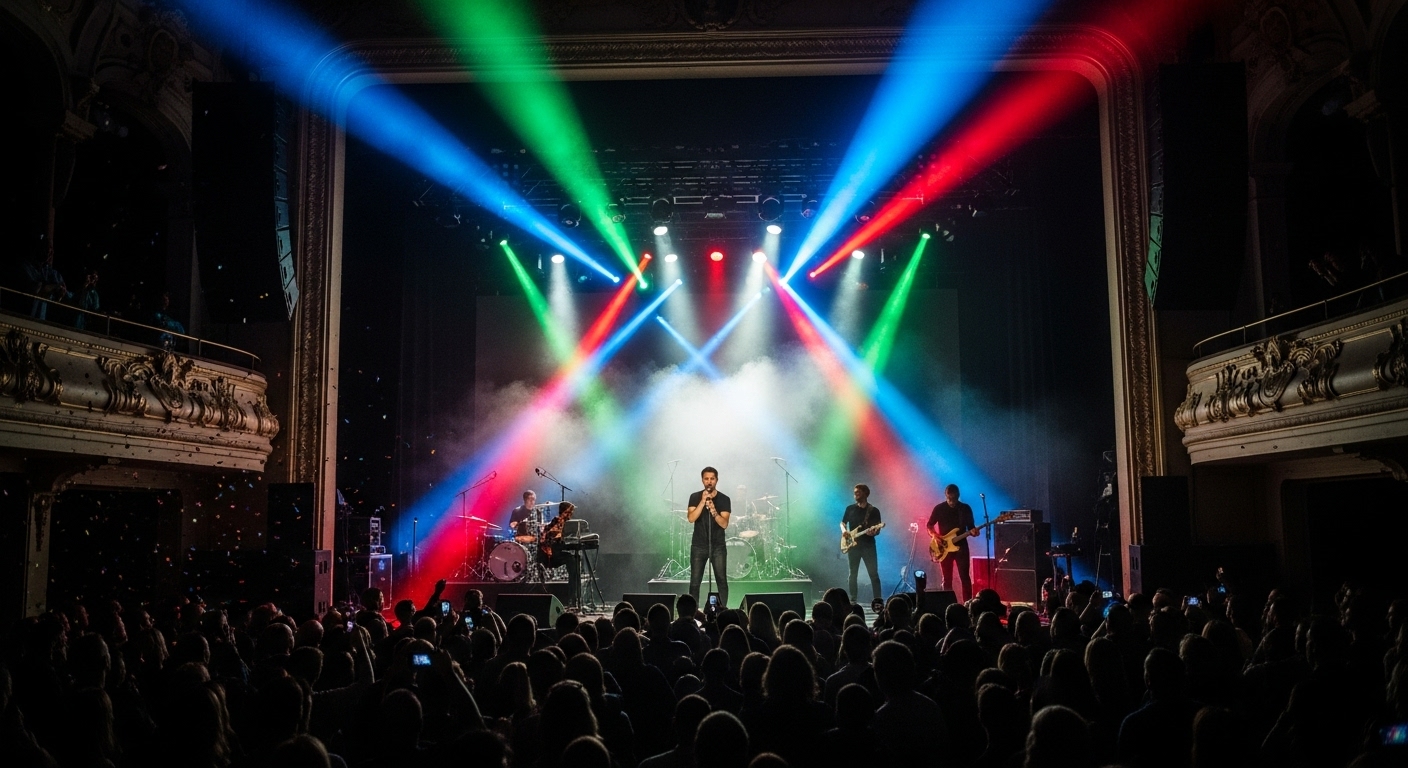Entertainment is one of the most beautiful aspects of human life. It is the rhythm that keeps our hearts alive, the laughter that lights up our days, and the stories that remind us who we are. From ancient times to the digital age, entertainment has evolved in unimaginable ways, yet its essence remains the same—to make us feel, to make us think, and to make us forget our worries for a while. It connects people across languages, cultures, and generations. It is the universal language of joy, curiosity, and emotion.
The Roots of Entertainment
The history of entertainment goes back to the earliest civilizations. Thousands of years ago, people gathered around fires to share stories, sing songs, and dance under the moonlight. These activities were not just pastimes; they were essential ways of expressing emotions, teaching lessons, and building community. Storytelling was among the first forms of entertainment—an oral tradition that passed down myths, legends, and wisdom. Ancient civilizations like Egypt, Greece, and Rome developed their own forms of art and performance that continue to influence modern culture.
In ancient Greece, theatre was born. People watched tragedies and comedies performed in open-air amphitheaters. The actors wore masks and told stories of gods, heroes, and ordinary people. These performances were not just for fun; they explored deep human emotions—love, fear, ambition, jealousy, and hope. The Romans, on the other hand, loved grand spectacles. They built massive arenas for gladiator games, chariot races, and plays. Entertainment was a part of life, a reflection of society’s values and power.
The Evolution of Performing Arts
As centuries passed, entertainment began to diversify. The Middle Ages brought the rise of traveling entertainers—jugglers, musicians, and jesters—who performed in towns and castles. Their shows were simple but magical, providing joy in a world where life was often hard. The Renaissance revived art, music, and theatre with fresh creativity. Shakespeare’s plays became legendary, combining humor, tragedy, and human truth in ways that still move audiences today.
By the 18th and 19th centuries, opera houses, theaters, and circuses became popular gathering places. Music evolved into a major form of entertainment, with classical composers creating timeless masterpieces. The circus introduced wonder and amazement with acrobats, animals, and clowns. People could escape reality for a while and immerse themselves in a world of imagination and thrill.
The Birth of Modern Entertainment
The 20th century changed everything. With the invention of the camera and motion pictures, entertainment entered a new era. Silent films captured hearts with expressive acting and dramatic storytelling. Then came sound, and suddenly movies could sing and talk. Hollywood became the dream factory of the world, producing stars who became legends. Cinema was no longer just an art form—it became a cultural phenomenon.
Television followed, bringing entertainment directly into people’s homes. Families gathered in front of small screens to watch news, comedies, dramas, and variety shows. It created shared moments and shaped social values. From the black-and-white era to the age of color, television became the center of family life.
At the same time, music took a revolutionary turn. The birth of jazz, rock ‘n’ roll, and pop transformed not only the entertainment industry but also fashion, culture, and youth identity. Artists like Elvis Presley, The Beatles, and Michael Jackson became global icons. Concerts and music festivals became more than just events—they became movements that united people through rhythm and emotion.
The Digital Age of Entertainment
With the arrival of computers and the internet, entertainment entered its most dynamic phase yet. The digital revolution changed how we create, share, and consume content. Today, we can watch a movie, play a game, or listen to a song anytime, anywhere. Streaming platforms have replaced traditional cinema for many, and social media has turned ordinary people into global entertainers.
Content creators now use cameras and smartphones to make videos that reach millions within minutes. Entertainment is no longer controlled by big studios alone; anyone with creativity and passion can find an audience. From comedy sketches to travel vlogs, music covers to cooking tutorials, the internet has opened endless doors of expression.
Video games have also grown into one of the biggest entertainment industries in the world. What started as simple pixelated adventures has evolved into massive, story-rich experiences. Games are now cinematic, emotional, and deeply interactive, blending art, storytelling, and technology. Esports tournaments fill stadiums, and players are celebrated like athletes.
The Role of Entertainment in Society
Entertainment is not just about passing time; it plays a powerful role in shaping culture, identity, and thought. Movies, music, and art reflect society’s dreams and struggles. They raise awareness about important issues, inspire change, and encourage empathy. A single film or song can touch millions and influence the way people see the world.
In times of crisis, entertainment provides comfort. During wars, pandemics, and economic hardships, people turn to stories, music, and laughter for hope. It reminds us that life, no matter how difficult, still has beauty. Entertainment connects people—it gives strangers something to share, discuss, and feel together.
It also plays a role in education. Documentaries, historical dramas, and even animated shows can teach lessons in creative ways. They make learning enjoyable and memorable. Art and entertainment also provide a safe space to explore emotions and ideas. They allow us to escape reality while also helping us understand it better.
The Power of Storytelling
At the heart of all entertainment lies storytelling. Whether it is a film, a song, a novel, or a video game, the essence remains the same—a story that captures the heart. Good stories make us laugh, cry, and think. They create worlds we wish to live in and characters we never forget.
Storytelling allows people to experience lives they never lived. It helps us empathize with others and explore the complexity of human nature. Through stories, we discover the best and worst of humanity, the triumph of love, the pain of loss, and the beauty of dreams. That is why storytelling will always remain the soul of entertainment.
The Impact of Technology on Creativity
Technology has become both a tool and a challenge for entertainment. On one hand, it has made creation easier than ever. Filmmakers use advanced cameras and special effects to bring fantasy to life. Musicians can produce songs in home studios. Artificial intelligence is now composing music, generating images, and even writing scripts.
On the other hand, technology has changed how audiences experience entertainment. Virtual reality and augmented reality allow people to step inside stories. Interactive films and immersive concerts blur the line between creator and viewer. This digital evolution continues to push creative boundaries, making entertainment more engaging and personal than ever.
However, it also raises questions. Does technology make entertainment more authentic or less? Does easy access reduce appreciation for art, or does it democratize creativity? The answers depend on how we use it. When balanced with imagination and emotion, technology can elevate entertainment to new heights.
The Globalization of Entertainment
In the past, entertainment was limited by geography. Today, it is global. A song produced in Korea can top charts in America. A film made in India can win awards in Europe. Streaming platforms have broken down barriers, allowing people to experience art from every culture.
This global exchange has enriched creativity. Artists collaborate across borders, blending languages, traditions, and styles. It also allows people to understand one another better, building bridges through shared experiences. Entertainment has become a form of soft diplomacy, bringing the world closer through laughter, tears, and imagination.
The Psychology of Entertainment
Entertainment has a deep psychological effect on the human mind. It releases stress, stimulates creativity, and enhances happiness. Laughter triggers the release of endorphins, music can change mood, and emotional films can help people process feelings. Entertainment acts as a mirror of human emotion, reflecting our desires, fears, and aspirations.
It also provides a sense of identity and belonging. Fans form communities around movies, games, or artists they love. These communities offer connection and acceptance. They remind people that they are part of something bigger.
Even escapism, often seen as mere distraction, can be healthy. It gives the mind rest, allowing people to recharge and return to reality with renewed energy. Entertainment, when enjoyed in balance, nurtures emotional and mental well-being.
The Future of Entertainment
The future of entertainment is full of possibilities. Artificial intelligence, virtual reality, and holographic technology will continue to redefine creativity. Imagine concerts where holograms perform beside real artists, or movies where viewers choose how the story ends. The lines between reality and fiction will blur further, creating experiences that are more personal and interactive.
Yet, no matter how advanced technology becomes, the core of entertainment will always remain human. It will always be about emotion, imagination, and connection. Machines can create, but they cannot feel. True entertainment comes from the heart, and that is something only humans can offer.
The Balance Between Art and Business
Entertainment is also an industry—a massive one that employs millions and generates billions. But at its best, it balances profit with creativity. When money overshadows art, entertainment becomes shallow. The challenge for creators and companies is to maintain authenticity while reaching global audiences.
Independent artists, filmmakers, and musicians continue to bring fresh perspectives, reminding the world that true entertainment is not about budget or fame—it is about passion and honesty. The most powerful works often come from simple ideas and genuine emotion.
Conclusion: The Endless Journey of Entertainment
Entertainment is not just about watching, listening, or playing—it is about living. It is the reflection of our dreams, fears, and desires. It evolves with time but never loses its purpose. It heals, connects, inspires, and transforms.
From the first story told around a fire to the next virtual reality masterpiece, entertainment continues to be the heartbeat of humanity. It proves that no matter how advanced we become, we will always crave laughter, music, stories, and wonder. It reminds us that joy is a universal language and that imagination will always be our greatest source of light.
Entertainment will never die because it lives within us. It is our escape, our reflection, and our celebration of life itself—a reminder that, even in the chaos of the modern world, we can always find beauty, emotion, and connection through the magic of creation.



